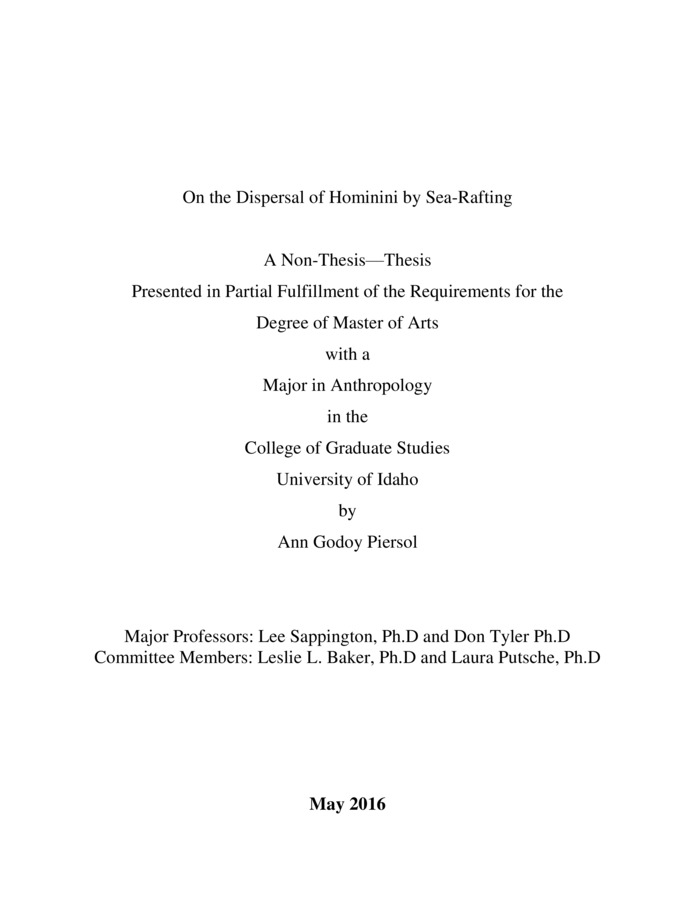Please note: this collection is no longer updated. Visit our Theses and Dissertations Collection in VERSO for all U of I ETD since 2012.
ETD PDF
On the Dispersal of Hominini by Sea-Rafting
Citation
Piersol, Ann Godoy. (2016). On the Dispersal of Hominini by Sea-Rafting. Theses and Dissertations Collection, University of Idaho Library Digital Collections. https://www.lib.uidaho.edu/digital/etd/items/etd_1084.html
- Title:
- On the Dispersal of Hominini by Sea-Rafting
- Author:
- Piersol, Ann Godoy
- Date:
- 2016
- Keywords:
- Anthropology
- Program:
- Anthropology
- Abstract:
- Floating islands have been accepted as an effective means of dispersal of a large variety of organisms across narrow and wide sea gaps. Here I explore the hypothesis that hominins may also have been conveyed on natural rafts across sea gaps and able to survive long enough to reproduce and establish a population, or add their genetic signature to already established inhabitants of the site upon which they disembark. A review of the colonization of several locations; South America by platyrrhine monkeys and caviomorph rodents, Sulawesi by the macaques and tarsiers monkeys, and Flores by Homo floresiensis, and the wide distribution of bottle gourds, reveals evidence that water barriers existed suggesting rafting as a mode of conveyance. Rafting substrata is composed of almost any material, including wide sections of coastlines and pumice rafts, typically a byproduct of natural disasters, and can be large enough to convey and sustain rafters across sea gaps, carried by wind and sea current to near or distant landforms. Throughout history there have been many reports of people rescued adrift at sea, demonstrating that as a species we are resourceful and will survive or adapt to any environment. The investigation of cranial morphology and genetic variation of initial populations of the Americas demonstrate that South American Paleocene remains are more similar to extant Australian, Melanesian, and Sub-Sahara populations, this variation is absent in North American remains. And finally, higher amount of Denisovan DNA is found primarily in Oceanic populations but missing from Eurasians suggesting possible rafting situations. All evidence supports the plausibility that rafting events have contributed to variation in the genetic mix of peoples around the world.
- Description:
- Thesis (M.A., Anthropology) -- University of Idaho, May 2016
- Major Professor:
- Sappington, Lee
- Type:
- Text
- Format Original:
- Format:
- application/pdf
Rights
- Rights:
- In Copyright - Educational Use Permitted. For more information, please contact University of Idaho Library Special Collections and Archives Department at libspec@uidaho.edu.
- Standardized Rights:
- http://rightsstatements.org/vocab/InC-EDU/1.0/

